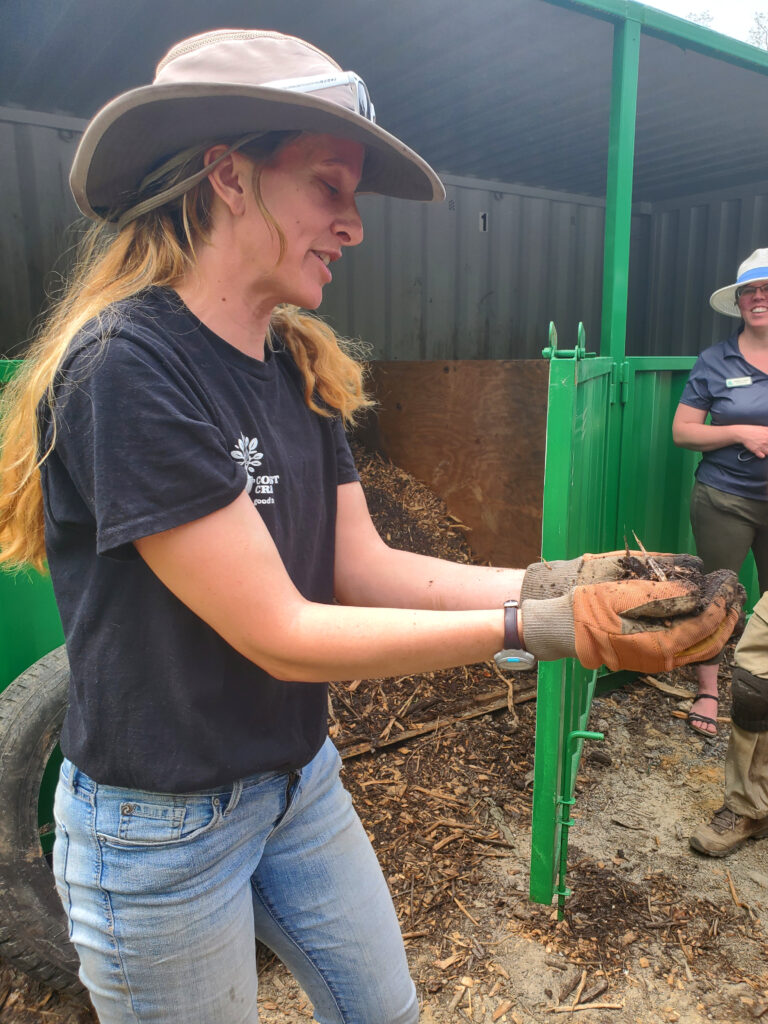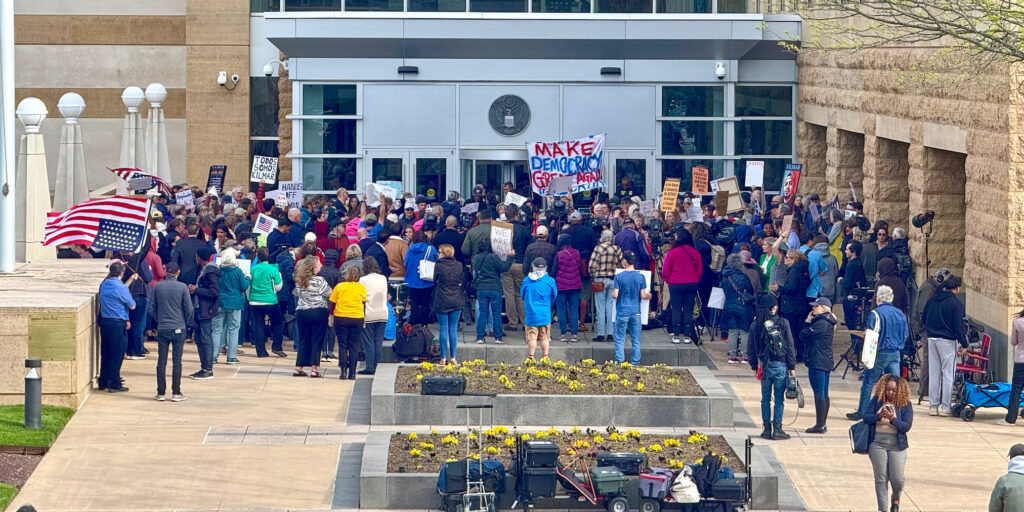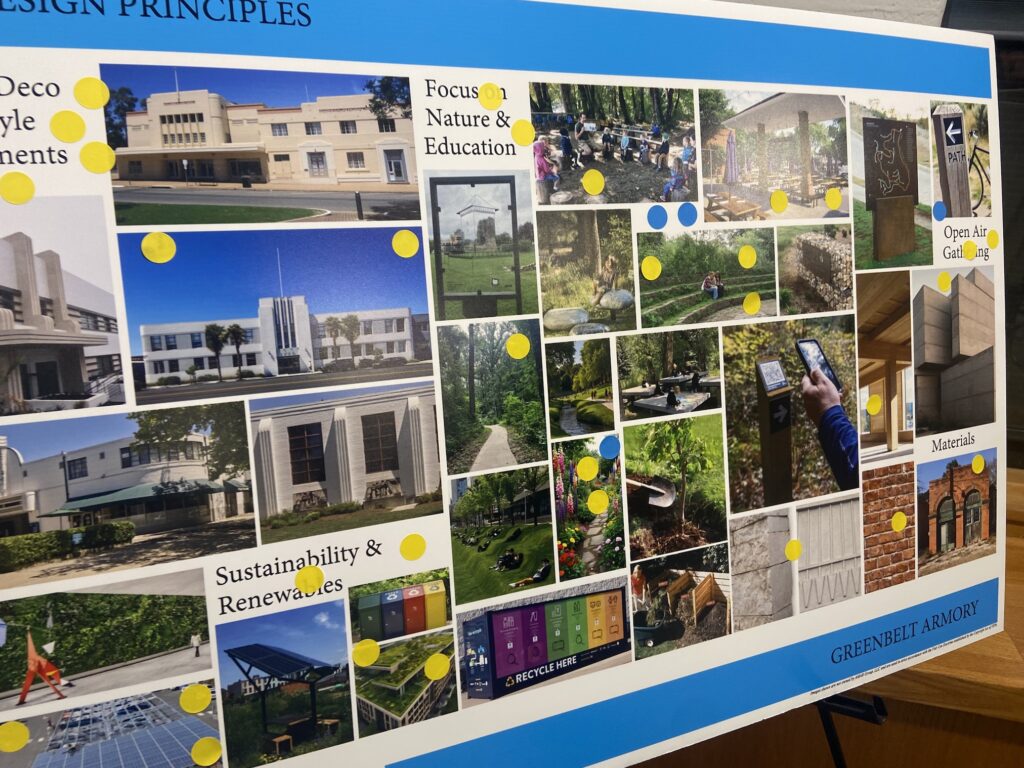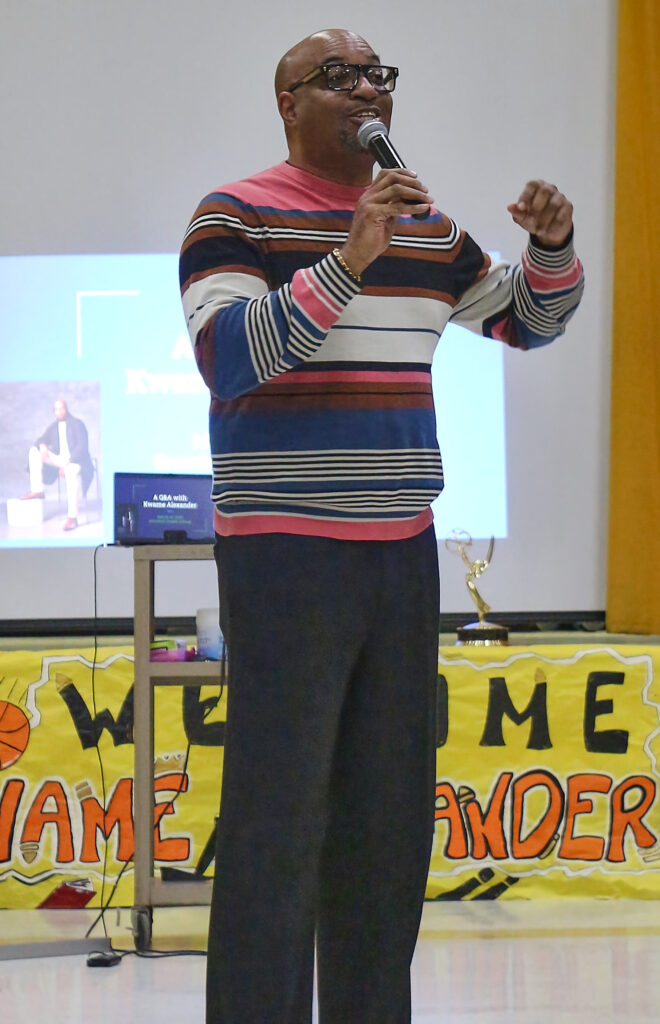Midway between Earth Day and Compost Week, a warm Friday, May 3, was perfect for the ribbon cutting of the new city compost facility located at the Trinity Assembly of God church on Good Luck Road. About 50 residents, several members of council and employees of Public Works attended. Three representatives of Compost Crew, a locally-owned food waste recycling business with whom Greenbelt partners in its compost effort, also attended.
In their remarks before the ribbon cutting, Mayor Emmett Jordan and Luisa Robles, sustainability coordinator for Greenbelt, especially thanked the Trinity Assembly of God church and its pastor, Tino Cione, the third partner in Greenbelt’s cooperative compost project. Jordan noted that the church is a historic member of the community, adding that prior to its conversion to the compost facility, that area of church property had been a trash pit. Tom Taylor of the Green Team Organic Circle recognized the assistance of other local partners and contributors – Composting Municipalities Organizing Now, CHEARS, Greenbelt Community Garden Club and Green ACES ‒ and expressed gratitude for the USDA grant the project has received after being informed of its availability by Compost Crew.
Compost Crew’s business development director Alan Van Order and CEO Ben Parry praised the Compost Outpost as the crown jewel of their projects. Greenbelt’s food scrap donations are the cleanest food scraps of all their collections, they noted, saying, “We in Greenbelt should be proud.”
Compost Crew’s Kristie Blumer gave a lively interactive presentation on the compost process utilized at the Compost Outpost, Compost Crew’s name for their proprietary system of handling food scraps. First she gave attendees a refresher course on what materials do and do not compost. Next she invited the audience to examine and smell materials from each stage of the composting process. With some trepidation, a few attendees volunteered to smell the food scraps collected the day before and seemed relieved to report there was no smell. Blumer explained how the composting process made that possible: to create compost for use as a soil amendment there must be a balance of carbon and nitrogen. The food scraps provide the nitrogen and wood chips that are added serve as the carbon source. The process uses a blower to aerate the material and water is added to maintain consistent moisture and temperature until the mixture is deemed compost. Electricity to power the blower and the water are currently purchased from the church but future plans include examining the feasibility of having a solar energy supply to provide the necessary electricity and capturing rain water to meet the need for water. When fully processed, the compost is moved to a pad to cure and await delivery. The Trinity Assembly of God church and Greenbelt Community Garden Club will receive the first delivery of compost.
Greenbelt’s plan to increase composting in the city has been in the works for 15 years. In addition to the Compost Outpost, the city maintains a community composting site at the Springhill Lake Recreation Center and a food scrap collection site at Buddy Attick Park. Food scraps from that facility are taken to the county composting center, not processed at the Compost Outpost.
The Food Scraps Curbside Collection Pilot Program is currently in the first of three phases. There are now 200 participating households in the pilot. Later phases will add 120 participants in August and then 90 more in about six months. Residents interested in participating in the next phase of the compost pilot project to begin in August may preregister on the Compost Crew’s website, compostcrew.com or use the QR code below.




